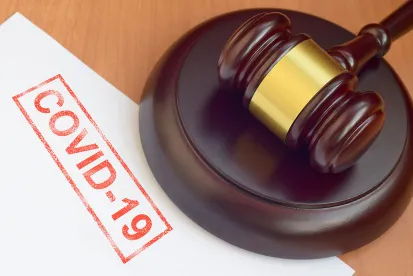At this point, employers and employees alike have adjusted to the new working environment that is COVID-19. With the number of positive cases recently on the rise, employers are growing more concerned about exposure to COVID-19-related liability. And they should be. Although some lawsuits filed against large employers have since been dismissed, new lawsuits against employers making claims regarding COVID-19 in the workplace are still being filed.
But there is hope. Back in June, we reported on a number of states that had passed, or were considering passing, legislation aimed at limiting COVID-19 liability for employers. Now, as 2020 nears its end, and recognizing that lawsuits related to the pandemic will continue, even more states are passing indemnity laws seeking to protect employers from exposure to civil liability.
In October, for example, Michigan passed an indemnification law that aims to protect employers from liability due to COVID-19 exposure. Michigan’s law protects employers provided they comply with “all federal, state, and local statutes, rules, regulations, executive orders, and agency orders related to COVID-19.” Other states, including Georgia, Iowa (providing a cause of action when one of the following applies: (1) the injury resulted in a COVID-19 diagnosis that resulted in inpatient hospitalization or death, (2) the act was intended to cause harm, or (3) the act constitutes actual malice), Kansas (whose law expires on January 26, 2021), Mississippi, Nevada (whose law expires on the latter of the termination of the state’s declared emergency or July 1, 2023), Tennessee, and Wisconsin (providing indemnity for certain health care professionals and manufacturers, distributors, and sellers of emergency medical suppliers who sell to charitable organizations or a government unit) have also joined the list of states that have passed some variation of employer indemnity laws.
Other states, however, have taken the path of protecting employers by expanding workers’ compensation protections. New Jersey’s workers’ compensation bill, if passed, will create a rebuttable presumption of coverage. An employer may rebut the presumption by proving – by a preponderance of evidence—that the employee was not exposed to the virus while working in the place of employment. (However, employers should tread carefully, as coverage under the workers’ compensation system serves to limit employer liability.)
It should be noted that many indemnity laws, like New Jersey’s workers’ compensation law, remain pending. Additionally, states like Arizona, Rhode Island, Ohio (House Bill 606 (which states an effective date of December 16, 2020, but has yet to be signed by the governor) and Senate Bill 308), and New York, have introduced but have not yet passed legislation.
In light of states providing employers with protection from liability directly stemming from COVID-19 exposure, employers should still be aware that employment discrimination claims are gaining traction. For example, a new class action lawsuit against Amazon was filed on November 12 in federal court in New York, alleging not only that the retailer put employees’ health and safety at risk, but that it also discriminated against minority employees by exposing them to COVID-19 through inferior conditions of employment. Although these state indemnity laws act to shield employers from tort-like claims, employers are still responsible for ensuring there are no discriminatory acts or practices that result in employees in a protected class being treated less favorably—even when the focus may otherwise be health and safety.
Employers who do find themselves named in a COVID-19-related lawsuit should consider the defense strategies asserted here.





 />i
/>i
